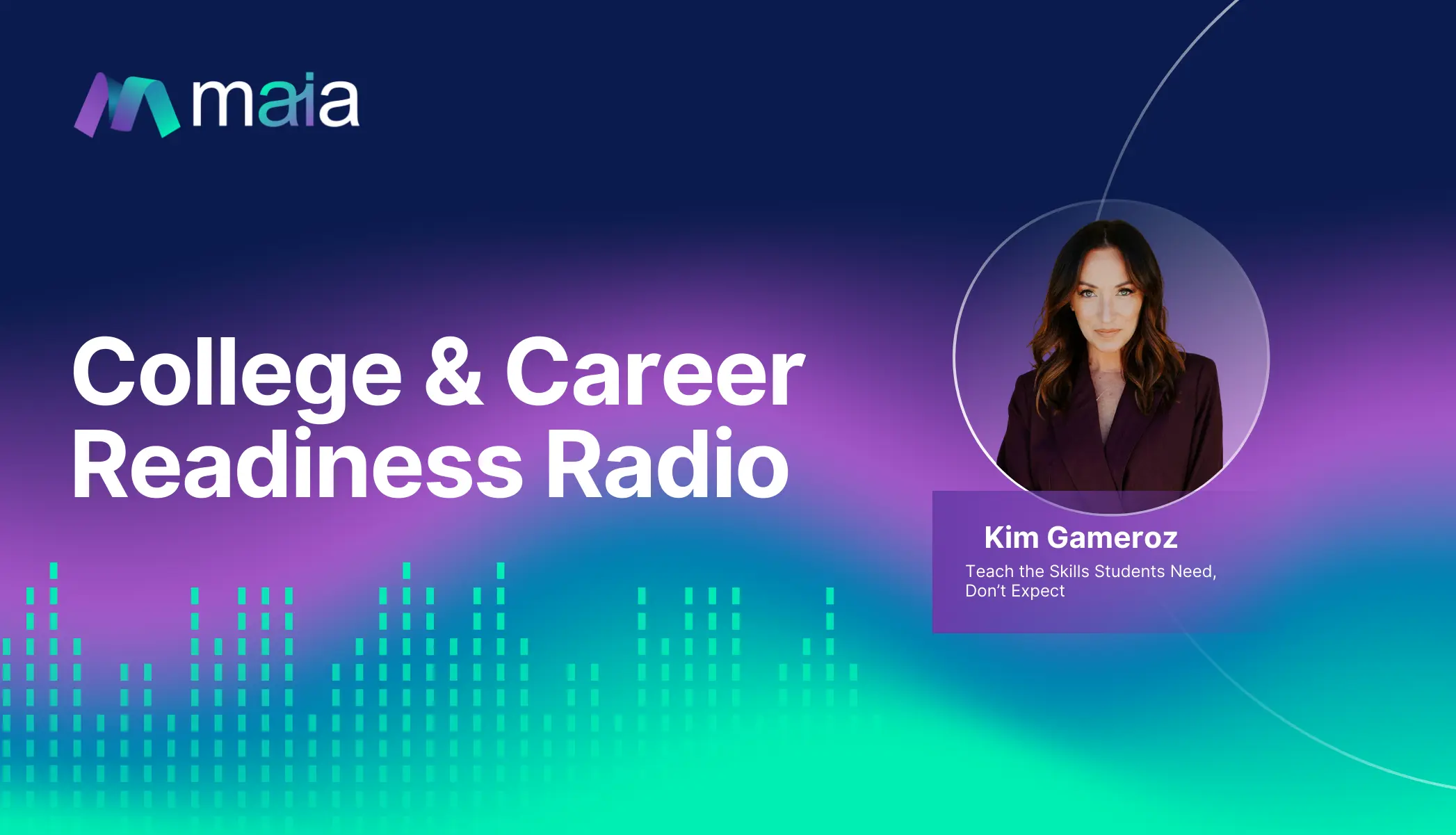Internships are far more than a resume builder. They offer real-world exposure to careers and can help to shape a student’s professional identity. Because interns have to navigate workplace norms, team dynamics, and industry expectations, they learn to understand that every organization has its own culture. It’s not just an industry that graduates–from high school and college–are entering into. They must decide what kind of corporate culture in which to work, and an internship, especially given multiple placements in different departments or companies, can be a great experience to learn about the types of cultural and social variations available.
Schools in both the K12 and higher education arena can support internships by building industry partners. It’s important to learn about what potential industry partners would want from the relationship, starting with philanthropy in some cases but moving past that in a quality agreement about what students receive and what the industry partner can expect from being connected to the school system. With a clear vision and strong communication, everyone wins, and students gain critical knowledge and skills that translate to success in these 6 assets and beyond.
#1. Students Can Discover What They Love (and What They Don’t)
Internships can help to clarify a student’s personal interests by experiencing new and different roles within an organization. By sampling different environments and responsibilities, students can confirm that they want to have a future in a particular field and even a specific job title within that field. One example of this is nursing. An internship in a clinic or hospital can expose students from a nursing pathway to dozens of different roles that nurses play. This can solidify what they want to continue to study and even what they want to do upon graduation.
On the other hand, and just as useful, is when an internship isn’t a fit for someone. Knowing what they don’t want to do can save years of work toward a certification or degree that might render itself useless. This savings comes in the form of time and money that would otherwise get spent on something that is no longer a passion. Great internships are built around work experience as well as discovery. Of course, tools can and should be used to identify students’ skills, interests, and abilities, but there’s no substitution for real-world experiences.
#2. Students Can Build a Network
Some might argue that the network effect of work-based learning, including quality placements as an intern, is the greatest outcome and most important reason to support them. Especially for marginalized students whose network is typically limited to school and community, internships can broaden their exposure to a more diverse range of people, including those with increased economic advantages. These early connections can lead to mentors and future job opportunities. Having a network of people to reach out to for support and assistance can be the difference between a low paying job and one that provides upward economic mobility. Just having the qualifications to do a job is often not enough to get it.
Early networks also have long-term value because of the relationships formed during the internship. A future invitation to apply for a job, a recommendation about someone else to meet, and increased social circles are just a few of the benefits that present themselves after the internship is over. Imagine a student who does an internship with a local law office who later gets a tip about an open role in an adjacent practice.
#3. Students Can Turn Short-Term Work Into a Long-Term Vision
As previously mentioned, internships can help students learn about roles within an organization that they might not have otherwise known about, but internships can also spark ideas for future specializations, advanced degrees, and niche jobs. Working alongside those within a particular career can highlight the educational experiences–including degrees and credentials–that the people in those roles earned to be qualified for a particular job. With this understanding, students can begin to further map their coursework and accreditation.
Short stints in internships give students an upper hand toward a long-term vision for their future. This allows for planning in a way that they don’t get from general experiences in school and can make a difference in both happiness and financial success after graduation. Schools that provide internships are supporting students on their journey toward who they want to become in life and possibly helping to fill specialized positions in the economy that might be hard to find candidates for in the future.
#4. Students Can Gain Confidence in Their Skills
Students can take assessments to learn a ton about their talents and strengths, and schools can teach a wide range of skills in classrooms and laboratories, but nothing beats on-the-job application of those skills. Even when students feel comfortable in a classroom setting, their confidence might wane when they’re asked to perform a task at work in front of other employees, managers, and even clients. Internships are often the perfect balance of low-stakes and real implementation.
It’s normal for early-career professionals to feel uncertain about applying what they learned in school or a certified training, but internships build confidence along the way before actually landing a job as a substantial contributor to the team with full or part responsibility to demonstrate outcomes. That’s not to say that some interns aren’t expected to produce, but quality internships are designed intentionally to practice skills, which leads to greater confidence in the future.
#5. Students Can Stand Out in the Job Market
Candidates with internship experiences tend to stand out in the job market over those who don’t have them. A distinct professionalism and solid foundation that come from work experience in a particular career set these candidates apart. They’re more likely to know what to put on their resume, what to ask in the interview, how to take initiative, and when to seek feedback because of the internship experiences.
Students with internships have more attractive digital portfolios and LinkedIn profiles. Not only do their profiles speak to their work experiences, the LinkedIn algorithm can find them more easily for the types of jobs for which they hope to apply. In a fast-paced and dynamic environment for searching for jobs and moving through the application process, internships make a difference. They also provide substance for letters of interest and antidotes during the interview process.
#6. Students Can Refine Career Goals Through Reflection
An important activity for interns is journaling. Systematically reflecting on experiences can help students uncover their feelings, hopes, desires, and pitfalls about work. Describing an experience and then reflecting on the outcomes is critical for a meta-cognitive approach to self-actualization. This is the highest level of learning and personal growth for students of all ages.
Students should be given time and space to reflect with the ability to look back at their reflections and possibly gain guidance, approval, and affirmation in the process. These might be daily, weekly, or monthly but they’re an integral part of a quality internship experience. Many graduate level internship programs that lead to a certification already include a reflection component, and it’s one thing that can be added at the high school and undergraduate level as well.
Conclusion
Any time of year is good for an internship but the summer is prime because students can work during the day without interrupting their coursework. Helping students find internships can come in many forms. Some schools have job boards, others have a bank of industry partnerships that are consistently looking for interns. Whether required or optional, schools should consider a process for connecting students to placements within the community.
Alternatively, students can be encouraged to find an internship on their own, and some internships are even paid. The key is that the experience is tied to what students want to sample in terms of their interests and postsecondary goals and that the outcomes are far greater than just work experience and filler for a resume.
If you want to learn more about how to build quality internship programs for students in your school, schedule a time to meet.
If you want to see a software platform that schools around the world are using to facilitate an internship program, including logging hours and writing reflections, request a demo.
.png)

.jpg)













